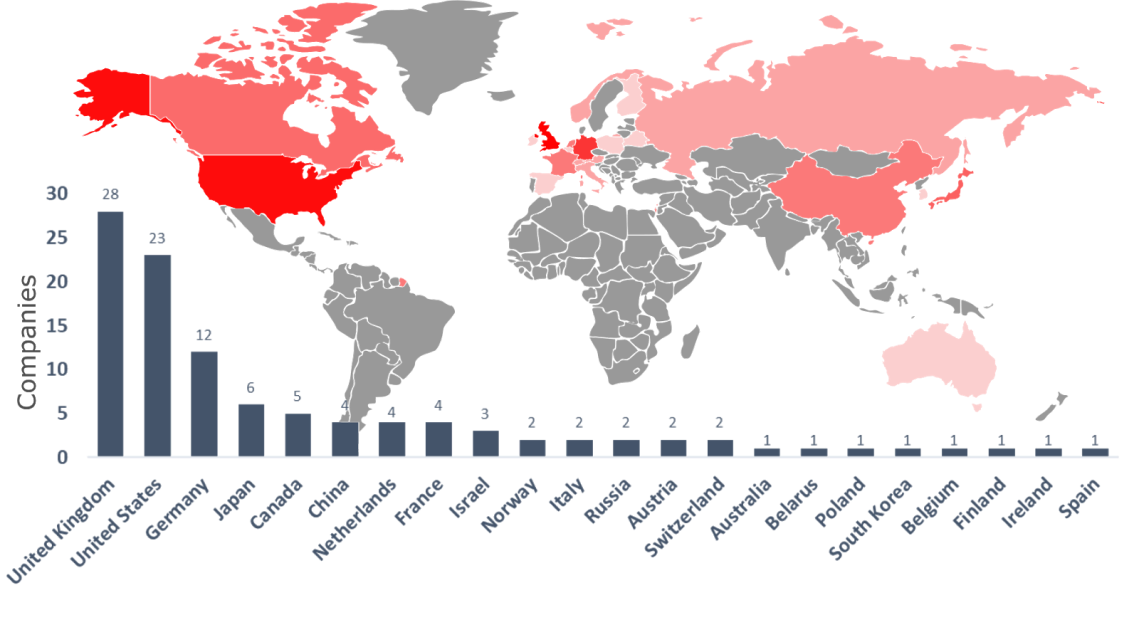Light detectors are an essential component of modern life, from providing the backbone of the global communications network to navigating future autonomous vehicles. Recently our research group has had a major breakthrough in this area and invented a new infrared detector with ultra high sensitivity. It was clear that our technology could have a tremendous impact on the world, but how do you get it there? Spin-out companies are a Silicon Valley thing right?
My position at the time was a Research Associate in the Advanced Detector Centre within the EEE department. Prof Chee Hing Tan identified the commercial opportunity and reached out to the Impact and IP team at the University of Sheffield to discuss the path to commercialisation. The Impact and IP team were extremely helpful and met with us to discuss the range of support available at the University, and encouraged me to apply for a place on an Innovation-to-Commercialisation of University Research (ICURe) program. ICURe is a fantastic program funded by Innovate UK that gives early career researchers the opportunity to get ‘out of the lab’ and validate commercially-promising ideas in the marketplace. The IP team connected Prof Tan and I with a business expert and unaware of where this journey would lead, our founding team set out on our ICURe journey.
My ICURe journey:

The ICURe programme kicked off with a 4 day bootcamp in Belfast. I was joined by Professor Chee Hing Tan, Dr Hannah Askew (Commercialisation Officer-Engineering) and Dr David Robbins (Business Adviser) along with 16 other teams from Universities from all over the UK. We received extremely valuable training from the NxNW ICURe team who helped us transition from an academic to entrepreneurial mindset and develop valuable skills for communicating our research. Hannah provided great clarity on extracting the value of our technology to our potential end users and customers. A useful technique that stood out for me was ‘the verbal business card’ which is a short sharp thought provoking way of communicating the value of a technology. I used it countless times over the next 3 months as a way of striking up conversation.
In the following 3 months I’m not sure if I spent more than 2 consecutive nights at home. I was busy traveling the world and talking with potential customers and end users about our technology. In total I had over 100 conversations and travelled to the US, Asia, Europe and the UK to connect with companies and learn about the challenges that they faced. This was an exhilarating, consuming and exhausting 3 months, but clearly identified the market opportunity for the technology. Somehow I also managed to find time to sample some of the local beers too.

With the support of Prof Tan, Dave and the Impact and IP team we assimilated the market information that I had gathered and used it to create a business plan for how we could develop our technology into a successful business. I pitched our findings to a panel of investors and business experts at Queen’s University Belfast. This was a daunting task at the time, but the feedback on our business plan was extremely positive and we were invited to join Phase 2 of the ICURe program and recommended to spin-out.
During Phase 2 of ICURe I worked closely with Prof Tan and the IP and impact team to create a business case for patenting our technology, and together we started applying for funding. In November 2019 we were awarded £242k from The Connecting Capabilities Fund – Northern Triangle Initiative (CCF-NTI) to support commercialising our technology. In January 2020 we were also awarded an InnovateUK grant and received investment from the University’s IP Development and Commercialisation (IPDaC) fund into our planned spin-out company called Phlux. We are now planning to spin-out the company later this year and I will be taking the helm as CEO.

The support from the University along every step of the way has been simply phenomenal.
In particular I would like to thank Professor Chee Hing Tan and Professor Jo Shien Ng for the fantastic support, Dr Hannah Askew, Dr Stephen Pyke and Andy Hogben from the Impact and IP team, Ross McMaster from SUEL and our business advisers Dr David Robbins and David Crisp.
Ben White, Research Associate, Department of Electronic and Electrical Engineering
